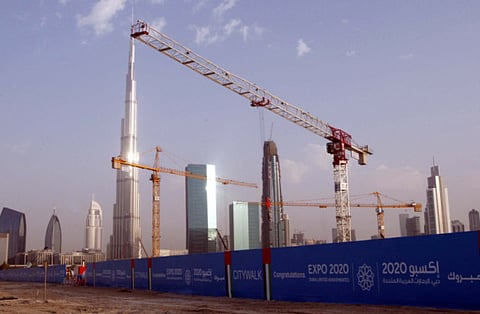Change in UAE real estate cannot be overnight
Recent reform packages need to be given time to come up with desired results

One of the problems with writing frequently on any topic — real estate, for example — is that the dynamics on the ground change far more slowly than the speed with which commentary is generated.
Issues highlighted in 2014 — such as the rise of affordable housing — are only taking hold now, given the combination of post-handover payment plans and economic forces.
The measurement problem of indices is only now being addressed, with the imminent launch of an official real estate price index by the Dubai Land Department.
Likewise, any optimism expressed in 2017 has still not manifested itself in price action, despite the rise in transactional activity.
Given the speed with which information travels, and the ways that it impacts capital markets, stakeholders mistakenly assume that the same can be said of all asset markets.
This is simply not the case, and the rate at which capital formation takes place is a function both of exogenous forces at work as well as sentiment, which only hardens with the passage of time.
Wide divergence
Expressions of sentiments throughout a capitalist paradigm vary depending on the state of the overall economy. Indicators such as transactional activity may be viewed both optimistically as well as with scepticism depending on the pretext.
Louis Brandeis said it best when he stated “wealth expressed in figures gives a wholly inadequate picture of the power of the economy. Wealth is dynamic, and is wielded by geniuses in combination. In the modern economy, we must trace the wealth to the expressions of power that it operates.”
A country in possession of excess savings does not necessarily translate into higher growth trajectory, as the case of Japan illustrated, as these savings were not channelled into productive enterprise. The same problem lurks at the other end of the spectrum as well.
Over investment does not necessarily translate into higher growth either, as it is often accompanied with unsustainable levels of debt. This funambulistic exercise of balancing two impulses is what determines the optimal level of growth in any industry and economy. In a capitalist paradigm, this expresses itself in periods that lead to excesses and shortfall, which then are absorbed over time.
Supply-side worries
In Dubai, the dominant narrative is that rapid urbanisation has perhaps led to oversupply in real estate, resulting in prices falling.
However, markets are forward-looking and, just as in 2013 — when indicators were flashing red, which then eventually led to prices correcting — the same indicators are forecasting optimism.
This is brought about by reforms as well as market forces, which have conspired to price rises taking place in certain communities, albeit modest. (Such as in International City and Discovery Gardens at the lower end, and on the Palm at the upper end).
The dominant narrative, however, is that value creation is occurring the most not in standardised manufacturing techniques — the cookie-cutter approach to real estate — but in customised builds where the value to the end user is being kept in mind first. Factors such as closed kitchens and larger bedroom sizes are making a comeback as land prices have allowed such developments.
It is clear that in the present times, we can get famous without having any talent. We can get rich without having any talent. But we cannot be talented without having any talent.
Hence, the ideal combination is wealth interacting with the raw talent of the workplace, the same talent that enables class mobility.
The relaxation of immigration laws acts as an enabler of such mobility, which, alongside capital mobility, helps to make wealth more dynamic in the next economic cycle of the city.
It is this dynamic that allows for genius to express itself in combination, and what we are seeing in Dubai is exactly this phenomena, even as sceptical narrative dominates the zeitgeist. These are slow moving variables ... and materialise over time.
What has taken hold in the narrative is that real estate, more than any other asset has become the symbolic capital of capital, standing in synecdochically for the whole of the economy.
Real estate, especially the phenomena of off-plan, comes across as mysterious and spectral, because it seems to conjure value out of paper promises, dealing primarily in abstractions.
Over time, however, these abstractions become very real repositories of wealth, and it is this that translates into mass participation over the long term.
— Sameer Lakhani is Managing Director at Global Capital Partners.
Sign up for the Daily Briefing
Get the latest news and updates straight to your inbox


